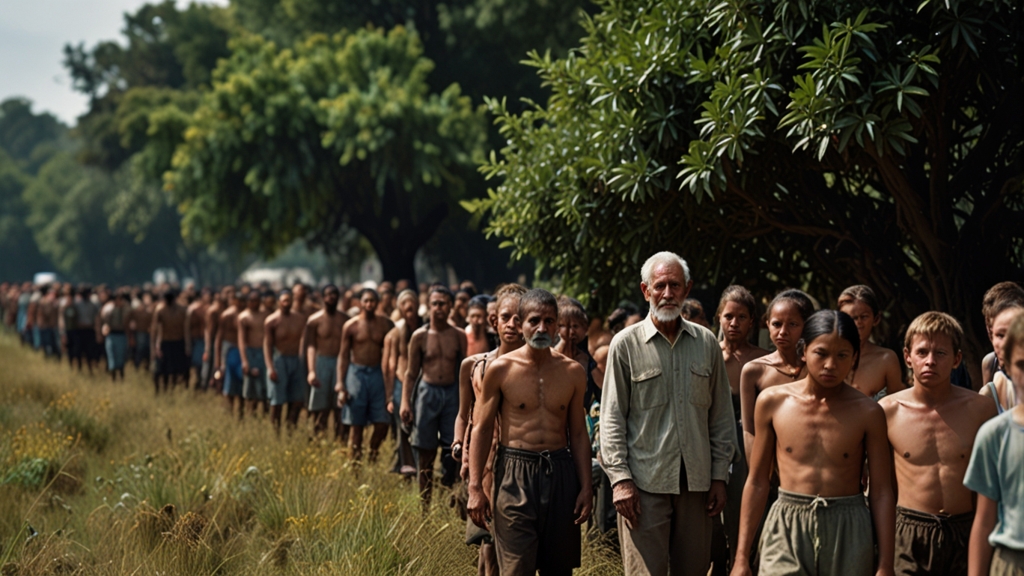The Prophets of Conflict: How Their Words Fuel Friction
In human history, conflict has often been driven by charismatic figures who wield the power of words with remarkable skill. These individuals, whether religious prophets, political leaders, or influential thinkers, often ignite and fuel tensions through their proclamations. This article delves into the dual-edge nature of influential rhetoric and how it triggers discord.
The Power of Words
Words can create, inspire, and unite, but they also possess the capacity to destroy, incite violence, and divide. Throughout history, the potency of a well-crafted speech or a fervent declaration has been evident repeatedly. Leaders have arisen in times of turmoil, galvanizing masses with promises of salvation, justice, or revenge. Their words, echoing through time, have led to both great achievements and devastating conflicts.
"The pen is mightier than the sword." – Edward Bulwer-Lytton
This famous adage underscores the extraordinary influence that speech can have over physical actions. However, with great power comes great responsibility, and the "prophets of conflict" have often used their oratory skills to further agendas that lead to strife.
Historic Examples
In antiquity, figures like the Hebrew prophets, who called for strict adherence to divine laws, sometimes depicted outsiders as enemies of the faith. This 'us versus them' mentality sowed seeds of xenophobia and violence. Similarly, the speeches and writings of Adolf Hitler in the early 20th century galvanized a nation and led to one of the most catastrophic conflicts in human history, World War II. His inflammatory rhetoric about a 'pure race' and the vilification of Jews, Communists, and other groups fed into widespread fear and hatred.
"All great movements are popular movements. They are the volcanic eruptions of human passions and emotions, stirred into activity by the ruthless Goddess of Distress or by the torch of the spoken word cast into the midst of the people." – Adolf Hitler, Mein Kampf
The fall of colonial empires and the rise of nationalism in the 20th century also showcased how prophetic figures can ignite conflict. Leaders in newly independent nations often painted former colonial rulers as oppressors, using this narrative to foster a strong national identity. While this rhetoric united nations and brought about political change, it also led to ethnic divisions and civil wars as different groups jockeyed for power in the post-colonial landscape.
Modern-Day Examples
Today, we see similar dynamics at play in various parts of the world. Populist leaders, whether in the West or elsewhere, use divisive rhetoric to stoke fears about immigration, globalization, and changing social norms. Social media platforms amplify these messages, creating echo chambers that reinforce hostile beliefs and widen societal divisions.
"In the social jungle of human existence, there is no feeling of being alive without a sense of identity. Yet, identity politics can become a source of conflict when leaders exploit these identities to pursue their own agendas." – Dr. Jordan B. Peterson, Clinical Psychologist
Religious extremism also continues to be a significant source of conflict in the modern era. Radical clerics leveraging interpretations of holy texts to incite violence have led to devastating consequences globally, from terrorist attacks to prolonged insurgencies.
Conclusion
Throughout history and into the present day, the prophets of conflict demonstrate the immense power of words. While the intention behind the rhetoric may vary—from genuinely held beliefs to manipulative agendas—the result is often the same: increased friction and conflict. Understanding the role of these influential figures, and the profound impact of their words, is crucial for navigating and mitigating conflict in our global society.
As we move forward, it is essential to critically examine the words of such figures and strive for dialogue that seeks to unify rather than divide. Only by recognizing the power and peril of rhetoric can we hope to build a more peaceful world.







